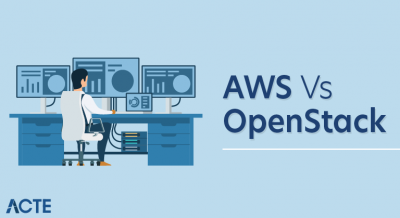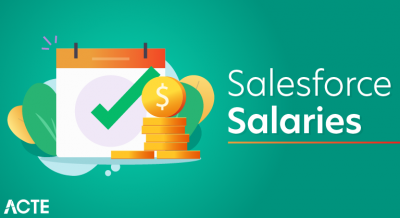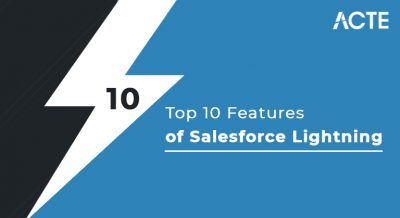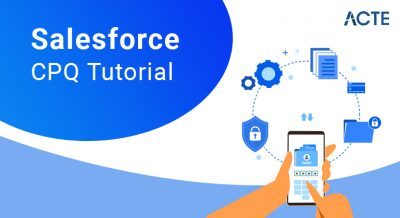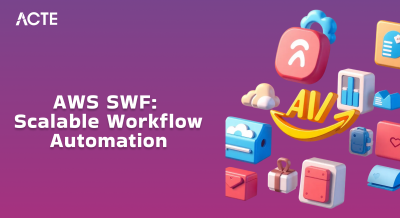
- Introduction to Salesforce Administrator Role
- Key Responsibilities of a Salesforce Administrator
- Skills Required to Be a Successful Salesforce Administrator
- Tools and Features Available to Salesforce Administrators
- Best Practices for Salesforce Administration
- How to Become a Certified Salesforce Administrator
- Challenges Faced by Salesforce Administrators
- The Future of Salesforce Administration
- Conclusion
Introduction to Salesforce Administration
Salesforce is one of the most powerful Customer Relationship Management (CRM) platforms used by businesses worldwide. It is designed to help companies streamline their operations, enhance customer relationships, and boost productivity. Behind the scenes of this vast Salesforce platform,Salesforce Administrator Role (admins) play a crucial role in ensuring that Salesforce runs smoothly, Salesforce Training , and is utilized to its maximum potential. A Salesforce Administrator is the backbone of any Salesforce implementation. They are responsible for managing and configuring the Salesforce platform, supporting users, maintaining system health, and ensuring that all aspects of Salesforce work seamlessly with a company’s business acumen. While the role of a Salesforce admin may seem straightforward at first glance, it encompasses a wide range of technical, operational, and communication skills. This guide will explore everything you need to know about becoming and thriving as a Salesforce Administrator. Whether you’re new to the world of Salesforce or a seasoned professional looking to enhance your skills, this guide will provide valuable insights into the role.
Key Responsibilities of a Salesforce Administrator
Salesforce administrators wear many hats, handling various tasks that range from day-to-day operations to strategic planning. Below are the core responsibilities of a Salesforce Administrator:
- User Management: A large part of a Salesforce administrator’s job is managing user accounts. This includes creating new users, assigning roles, profiles, and permissions, and maintaining user access. The Salesforce admin ensures that the right users have access to the right data while maintaining strict control over sensitive information.
- Data Management and Integrity: Ensuring that the data within Salesforce is clean, accurate, and up to date is a critical responsibility. Admins routinely monitor and maintain data integrity by using tools like validation rules, data import/export Salesforce features, and reports.
- Customization and Configuration: Salesforce offers a high degree of customization, and the Salesforce admin is responsible for tailoring the Salesforce platform to suit the needs of their organization. This includes customizing page Salesforce Database Architecture , creating custom fields, automating processes through workflows, and building reports and dashboards.
- Security and Compliance: Salesforce admins are responsible for implementing security protocols to protect sensitive customer data. This includes setting up security controls, monitoring user activity, and ensuring compliance with industry regulations like GDPR and CCPA.
- Support and Training: Admins serve as the first line of support for Salesforce users. They assist with troubleshooting issues, provide training on new features, and ensure that the team is using Salesforce effectively.
- System Maintenance and Updates: Salesforce is constantly evolving, with regular updates and new features. A Salesforce admin must stay current with the latest releases, test them in a sandbox environment, and ensure smooth deployment across the organization.
Learn the fundamentals of Salesforce with this Salesforce Training .
Skills Required to Be a Successful Salesforce Administrator
To excel as a Salesforce administrator, one must possess a mix of technical, business, and interpersonal skills. Here are the top skills needed:
- Technical Skills: A deep understanding of Salesforce’s features and functionalities is a must. This includes understanding how to customize Salesforce and use tools like Flow, Apex, Lightning components, and Understanding OWD in Salesforce for Security . Data Management The ability to manage large datasets, clean data, and ensure integrity is vital. Proficiency in automating business processes through tools such as Workflow Rules, Process Builder, and Flow Builder.
- Business Acumen: A Salesforce administrator needs to understand the business processes they’re supporting and how Salesforce can streamline or improve those processes. This includes communication with stakeholders, understanding business goals, and ensuring that Salesforce meets organizational needs.
- Problem-Solving and Analytical Thinking: Administrators often encounter complex issues related to user requirements, system errors, or data inconsistencies. The ability to analyze and troubleshoot problems is essential for maintaining a smooth-running system.
- Communication and Training Skills: Salesforce admins interact with various teams within an organization and provide training and support. Strong communication skills are necessary to explain complex Salesforce concepts in an easy-to-understand manner.
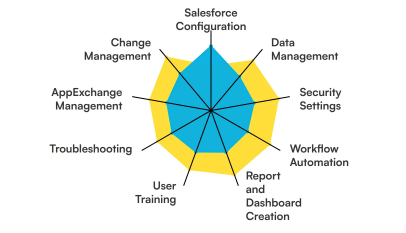
Tools and Features Available to Salesforce Administrators
Salesforce comes with a wide range of tools and features that make the job of an administrator easier. Here are some of the most important:
- Salesforce Lightning Experience: The Lightning Experience is the modern, intuitive user interface of Salesforce Developer. It offers enhanced features for admins to configure, manage, and optimize the user experience. Admins can use the Lightning App Builder to create custom pages and use Lightning Components to add functionality to pages.
- Salesforce Reports and Dashboards: Admins can create custom reports and dashboards to give stakeholders valuable insights into business performance. These tools allow admins to analyze data and present Map Methods in Salesforce in an easy-to-understand format.
- Process Automation Tools: Salesforce offers various tools for automating business processes, including
- Process Builder: A visual tool to automate business processes without code.
- Flow Builder: Allows admins to create complex workflows, including guided processes and logic-driven actions.
- Workflow Rules: Automates standard internal procedures and processes.
- AppExchange: AppExchange is Salesforce’s marketplace for third-party applications and integrations. Admins use this platform to enhance Salesforce Developer functionality with additional apps that can address business needs.
- Salesforce Mobile App: The Salesforce Mobile App allows admins to manage and monitor Salesforce activities from anywhere. Admins can configure mobile layouts and enable mobile features for their team.
- Regular System Audits: Salesforce SOQL is crucial to regularly review the health of your Salesforce system. This includes checking user permissions, system logs, data quality, and performance issues. Regular audits can prevent potential issues before they become major problems.
- Use Sandbox Environments: Before making changes to your live Salesforce instance, always use a sandbox environment to test your configurations, customizations, and updates. This prevents disruption to business operations.
- Stay Current with Salesforce Updates: Salesforce releases new features three times a year. Salesforce admins need to stay informed about the latest updates and evaluate how they might impact their organization.
- Focus on User Adoption: To ensure that users fully utilize Salesforce, focus on training, communication, and user support. Tailor training programs to different user roles and ensure that everyone knows how to use Salesforce effectively.
- Prioritize Data Quality: Poor data quality can compromise the effectiveness of Salesforce. Set up validation rules, data cleaning processes, and deduplication tools to ensure high data quality.
- Prepare for the Salesforce Administrator Exam: The Salesforce Certified Administrator exam tests your knowledge of Salesforce features and best practices. To prepare, you can take official Salesforce Developer Salesforce Training courses, study from the Salesforce documentation, and use resources like Trailhead, Salesforce’s online learning platform.
- Take the Exam: The Salesforce Administrator certification exam is a multiple-choice test with 60 questions, and you have 105 minutes to complete sandbox environment. It covers a variety of topics including configuration, data management, and security.
- Maintain Your Certification: Salesforce certifications need to be maintained with periodic release exams. Salesforce updates its platform regularly, and admins must stay current to keep their certification valid.
- User Resistance: Getting users to embrace new Salesforce features or processes can be difficult, especially if they’re accustomed to old systems or procedures. Overcoming resistance requires strong training, communication, and continuous support.
- Managing Data Quality: Keeping data clean, organized, and consistent is an SAAS vs PAAS in Salesforce challenge. Admins must continually monitor and address data issues like duplication, inconsistency, and inaccuracy.
- Balancing Customization with Simplicity: While customization is one of Salesforce’s strengths, too many customizations can complicate the system and hinder user adoption. Finding the right balance between customization and simplicity is essential.
Dive into Salesforce by enrolling in this Salesforce Training today.
Best Practices for Salesforce Administration
While Salesforce offers many tools and features, effective Salesforce administration requires careful planning and execution. Here are some best practices to follow:
How to Become a Certified Salesforce Administrator
Becoming a certified Salesforce Administrator is a great way to enhance your credibility and career prospects. Here’s how to become certified:
Take charge of your Salesforce career by enrolling in ACTE’s Salesforce Master Program Training Course today!
Challenges Faced by Salesforce Administrators
While the role of a Salesforce administrator is rewarding, it’s not without its challenges. Some of the common obstacles include:
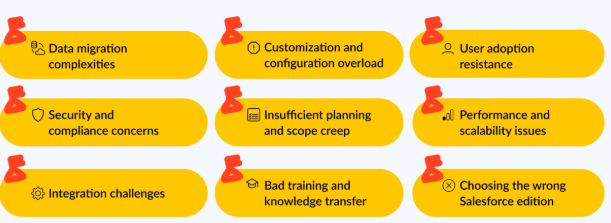
Want to ace your Salesforce interview? Read our blog on Salesforce Interview Questions and Answers now!
The Future of Salesforce Administration and Career Growth
Salesforce administration is a constantly evolving field, and the future looks bright. As businesses continue to adopt Future Method in Salesforce and the platform grows in complexity, the demand for skilled Salesforce admins will only increase. The rise of automation, artificial intelligence, and machine learning within Salesforce will also create new opportunities for admins to leverage these technologies in business acumen. For those seeking to grow in their Salesforce careers, opportunities for advancement are abundant. Experienced Salesforce administrators can transition into roles such as Salesforce Developer, Salesforce Consultant, or Salesforce Architect.
Conclusion
Salesforce administrators are integral to the success of organizations using the Salesforce platform. Salesforce Administrator Role diverse responsibilities, from managing user access to automating business processes, require a combination of technical expertise, Salesforce Training , and strong communication skills. By mastering these skills and staying current with the latest Salesforce features, Salesforce admins can drive organizational success and enjoy a fulfilling career in one of the most in-demand IT roles today.

